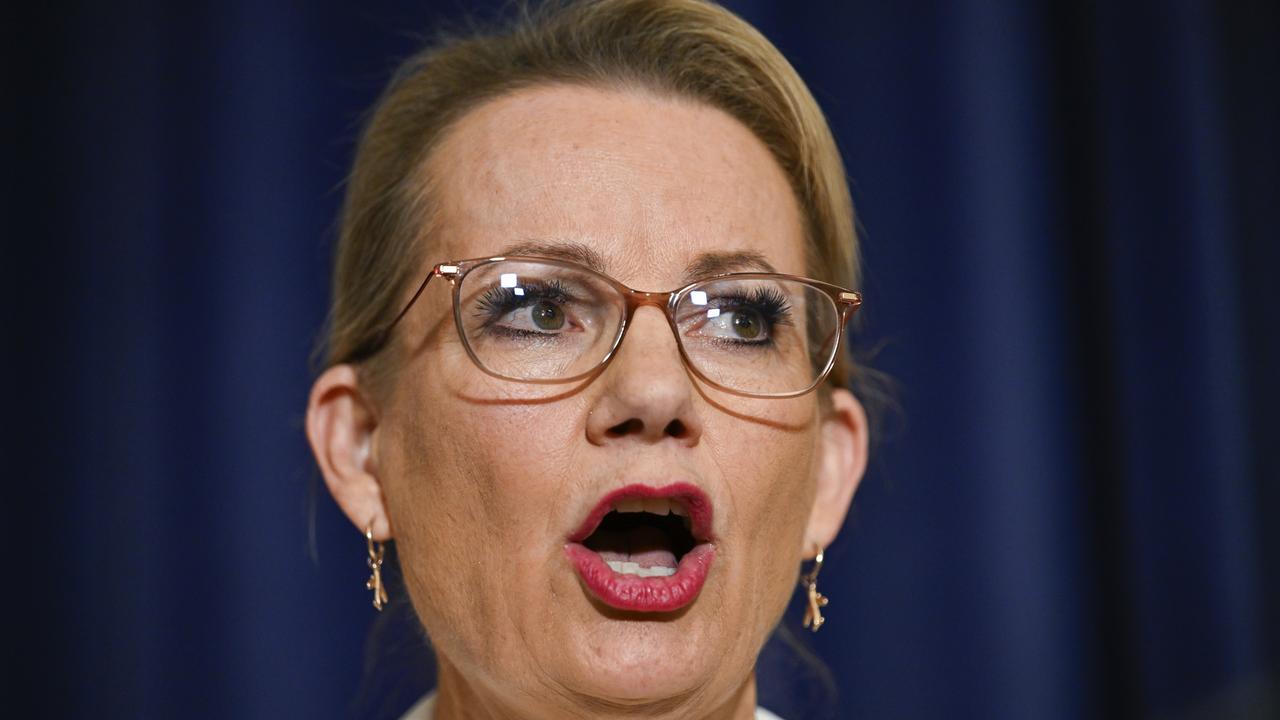Campbell: Labor’s politicians might be mediocre, but that’s exactly what Australians want
It’s all well and good for the veterans of the Hawke-Keating era to complain that the current Labor government is “mired in mediocrity”, but time and again we’ve shown that’s what the Australian public wants.
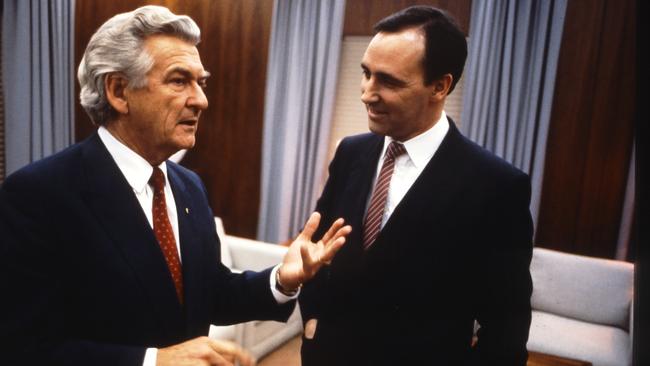
James Campbell
Don't miss out on the headlines from James Campbell. Followed categories will be added to My News.
Whenever politicians, business folk or commentators take to the airwaves to declare that “Australians are looking for leadership …” on whatever is the topic of the day, I have to resist the temptation to add under my breath “…. from someone else.”
Not that I’m any different.
Like most Australians I suspect, from time to time I’ve found myself complaining that “they oughta” do something about a problem that needs fixing – the “they” being the nameless wielders of authority we are happy to defer to in preference to having to get involved ourselves.
Alas, the flip side of this theoretical national desire for strong leadership is the concrete guarantee that even moderate change will cause ear-splitting levels of squealing.
Which is why it’s all very well for the veterans of the Hawke-Keating era to complain that current Labor government is “mired in mediocrity” as former ACTU boss Bill Kelty did recently, the reality is that time and again we’ve shown that mediocrity is what the Australian public wants.
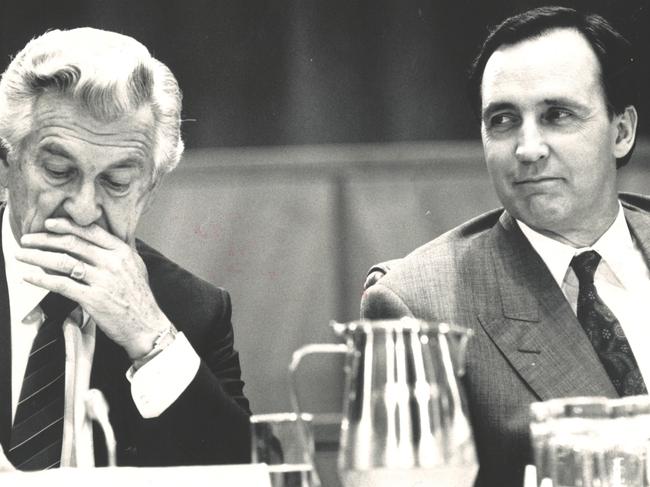
Unsurprisingly when Kelty’s charge was put to him last week Albo wasn’t having it, instead reeling off a list of achievements that I’m sure we can look forward to reading more about in his memoirs.
What he should have said is: “Of course we’re mediocre. Look at me. I’m a 61 year-old political hack who spent decades waiting my turn. I’m not Hawke or Keating, let alone Whitlam. And you know what? That’s not what people want. We offered people change in 2019 and Australians said ‘no thanks’. We’re exactly the government you voted for.”
He might also, if he’d been in a combative mood, have pointed out that after the political disaster of the 2014 budget the previous mob basically spent the next seven years minding the shop, and asked why he is being held to a different standard.
Kelty isn’t the only retired Labor player complaining these kids aren’t as good as the champions in their day.
A day earlier the former Foreign Minister Gareth Evans had complained that despite having “enough obviously first-rate talent in its ministerial ranks to be a great reforming government” Albo’s government’s “instinct, on an increasing number of issues, has been to move into cautious, defensive, wedge-avoiding mode”.
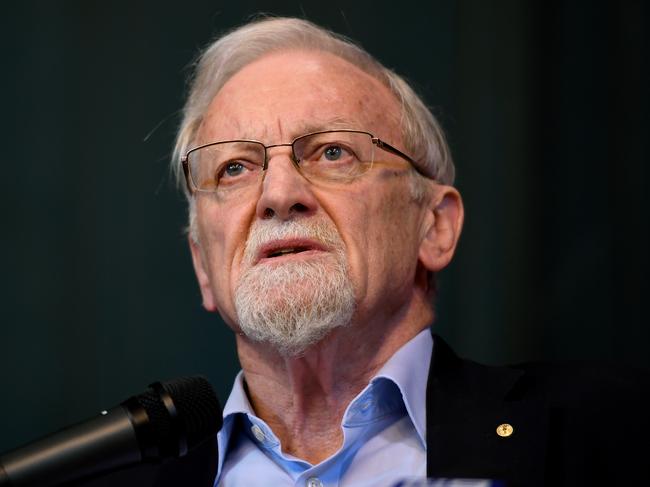
To be fair Evans conceded there are “always practical constraints – more often than not driven by economic winds and budgetary pressures – on how much any government can realistically achieve in any given period” but what matters – at least on social policy – he said “how much can be achieved depends more than anything else on how much our political leaders want to achieve. It depends on their willingness and ability to articulate a vision of why we would be a better society with these reforms, to communicate and argue effectively for them, and demonstrate a capacity to deliver them effectively.”
To which I would reply, maybe.
Because as a famous German journalist once observed, while men make their own history, they do not make it as they please; they do not make it under self-selected circumstances, but under circumstances existing already.
And right now these circumstances are making achieving change much, much harder than back in the 1980s when Kelty and Evans were going round – starting with the way Australians vote.
When Bob Hawke was first re-elected 40 years ago, he and the Coalition’s Andrew Peacock got 92.5 per cent of Australians’ first preferences.
Between them Albo and Scott Morrison got 68.3 per cent.
After the 1984 election, Hawke’s Government had 34 out of 76 senators. Today Albo has 25.
To get his legislation through, Hawke had to win over the moderate, middle-of-the-road, Australian Democrats.
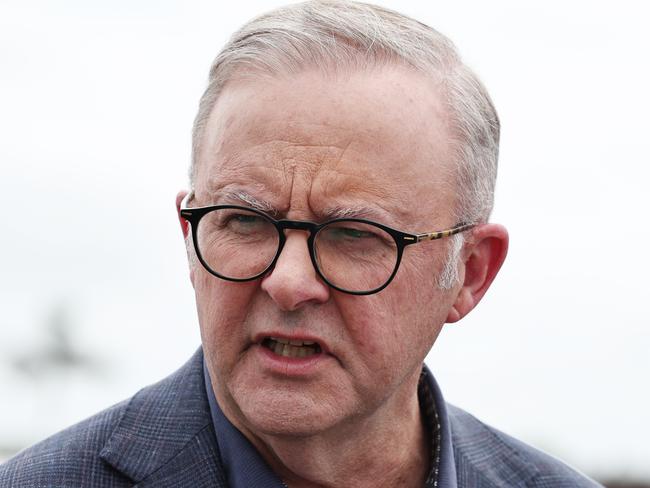
The best indication of Australians’ desire today for a moderate middle-of-the-road centre-party is that not only are Democrats a distant memory in Canberra, their membership was so tiny they were deregistered in 2015.
To get any legislation passed today Albo has to deal with the Greens who have no interest in making his life easy.
The change in the electoral situation since the 1980s is as nothing however to the change the internet has wrought in the way people see the world.
Back when Evans was throwing ashtrays around his office the opinion shapers of the Australian media could be comfortably fitted around a boardroom table.
Moreover there was such agreement among so many of them about what needed to be done that Hawke was able to elevate “consensus” to one of his governing principles.
Not only are there vastly more media outlets servicing niche opinions, there are just vastly more people whose opinions have to be taken into account, many of whom read or watch nothing.
Not only was Australia a much less diverse country in 1984 at 16.5 million people, it was also a much smaller one.
Unsurprisingly the end of a citizenry whose opinions are shaped by newspapers and TV has also meant the end of a shared political culture.
We shouldn’t complain if our politicians are mediocre men and women who achieve little, there’s little evidence we would have it any other way.



